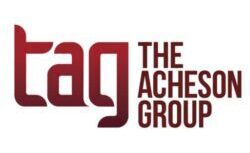
Early this year, FDA began increasing FSVP inspections and issuing 483s and Warning Letters (,,as we discussed ,,in a newsletter). Then the pandemic hit, and FDA issued a statement that it would temporarily not enforce FSMA requirements for onsite FSVP audits of food suppliers if other supplier verification methods are used instead and that it would ,,temporarily conduct its importer inspections remotely, requesting that records be submitted electronically. Just last week, ,,FDA updated its policy on guidance on FSVP audits, continuing the temporary policy “exigent circumstances related to an ongoing public health threat.”
That did not mean, however, that food facilities were off the hook for verifying their foreign suppliers during COVID-19 – or responding to 483s issued before onsite inspections were discontinued. In fact, since the beginning of April, FDA has issued ,,12 FSVP warning letters (search FSVP), primarily stating it had not received a response to an issued Form FDA 483a which had found the facility, not in compliance with FSVP requirements.
Specifically, the letters tend to state: “You did not develop, maintain, and follow an FSVP as required by the FSVP rule (21 CFR 1.502(a))… Specifically your firm did not develop an FSVP for the products that you import, including [product(s)/ingredient(s)].” FDA then states that if prompt action is not taken to correct the violations, it may take further action, including refuse admission of the food products or placing the foods on detention without physical examination (DWPE).
The warning letters being issued bring up a number of issues:
- FSVP Requirements. At its most basic, as described by FDA, the FSVP rule requires that the U.S. owner or consignee of a food offered for import verify that the food meets U.S. safety standards. As such, for each (non-exempt) food imported, the importer is to use a qualified individual to develop, maintain, and perform FSVP activities. (,,See TAG’s February Insights article for further detail on the specifics of the rule.)
- 483 Response. A 483 is issued at the end of an FDA inspection when an investigator(s) has observed any conditions that may violate the (FD&C) Act and related Acts. The facility is responsible for taking corrective action to address the cited conditions. While ,,FDA’s FAQ page states that Companies are encouraged to respond to the FDA Form 483 in writing, the 483s generally state, “Within fifteen (15) working days of receipt of this letter, please notify this office in writing if you have taken any specific steps to correct the violations cited in this letter.” It is then when FDA has not received a response, or when upon further review, the observations are determined egregious, that a Warning Letter is issued.
- FDA Is Still Working. Although FDA has temporarily suspended in-person inspections and some regulatory requirements, don’t think the agency has suspended its operations altogether. The agency is continuing to regulate the food industry and take action against food safety violations.
- Food Safety during COVID-19. As we have stated several times in our newsletters of the last few months, it is essential that all facilities continue to focus on food safety, despite the challenges of COVID-19. Even while ,,,implementing efforts to protect your employees, the focus on food safety is just as important as ever, for both public health and your business continuity.
For more information, assistance, or operational assessment in any of these areas, give TAG a call to discuss your situation and needs with our food safety and public health experts.
About The Acheson Group (TAG)
Led by former FDA Associate Commissioner for Foods ,Dr. David Acheson, TAG is a food safety and public health consulting group that provides guidance and expertise worldwide for companies throughout the food supply chain. With the advent of the COVID-19 pandemic, TAG’s public health and infectious disease expertise has been brought to the forefront to assist food businesses weather the increased challenges of employee protection, food safety, and business continuity. With in-depth industry knowledge combined with real-world experience and advanced virtual technologies, TAG’s team of experts helps companies assess their unique situation, address gaps, and deploy best practices to more effectively mitigate risks, improve operational efficiencies, and protect their brand. ,www.AchesonGroup.com





